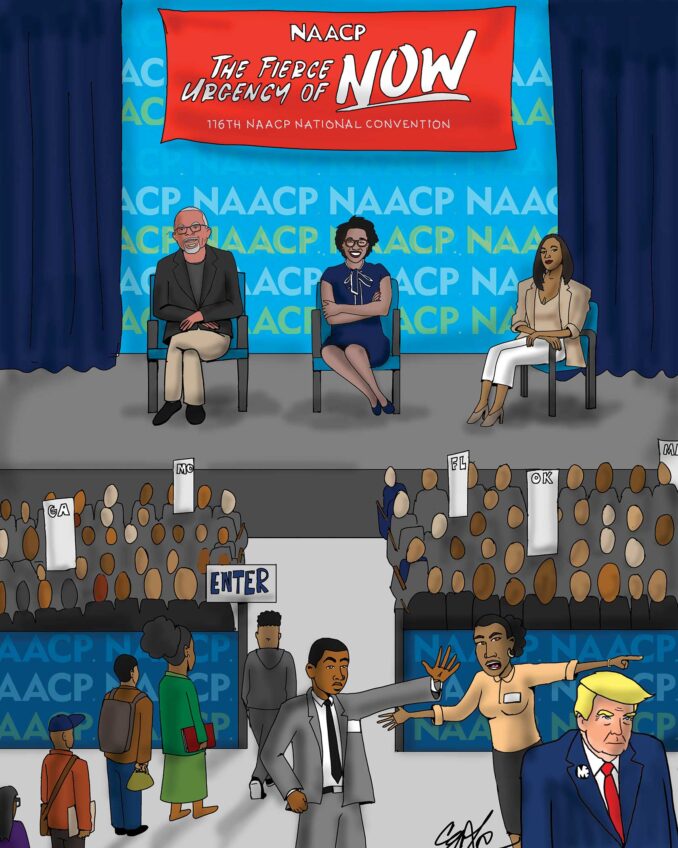
Many citizens hoped that the election of Barack Obama as president would launch a non-racial America. Unfortunately, the conduct of Obama’s successor has sabotaged that possibility, at least for now. However, the multiethnic confederation fashioned during the Obama era has altered the more limited perspective of many blacks in Boston on political alliances.
New political ground was broken when Linda Dorcena Forry was elected in 2013 as the first black to be seated in the state Senate from the 1st Suffolk District. She narrowly defeated Nick Collins, the state representative from South Boston’s 4th Suffolk District. Collins’ family are long term residents of that community. Collins was gracious in defeat and became a committed ally of Forry in the House of Representatives.
When Forry recently left office to return to the private sector, Collins sought the Senate seat in an interim election. He was opposed by Althea Garrison, the perennial political candidate, and Donald Osgood Sr., a local minister. Both are black, but Forry endorsed her former compatriot, Nick Collins. As a graduate of Boston Latin School and Babson College, Collins’ educational background as well as his eagerness to represent all the residents of the district indicated that Forry made a sound endorsement.
In another race, Ayanna Pressley is running to unseat Michael Capuano in Congress. It is generally conceded that no major policy issues divide them. Consequently, the difference boils down primarily to race and gender. Former Governor Deval Patrick has endorsed Capuano, which is a move expected of anyone with good character. Capuano came out for Patrick in his race for governor even though the former Attorney General Thomas Reilly had the support of leading Democrats. Patrick and Capuano enjoy a longstanding mutual respect.
There was another racial twist in that election for governor. Support for Deval Patrick among blacks was extensive, but Wayne Budd, a leading black lawyer, endorsed Thomas Reilly. Not only had Budd and Reilly once formed a law firm, but they had grown up together in Springfield, and had always been as close as brothers.
While ethnic issues are indeed important there are often other considerations of greater significance than the questionable concept of race. As blacks become more involved in sophisticated political, business and professional activities, personal commitments regularly emerge more forcefully than binding ethnic ties.






